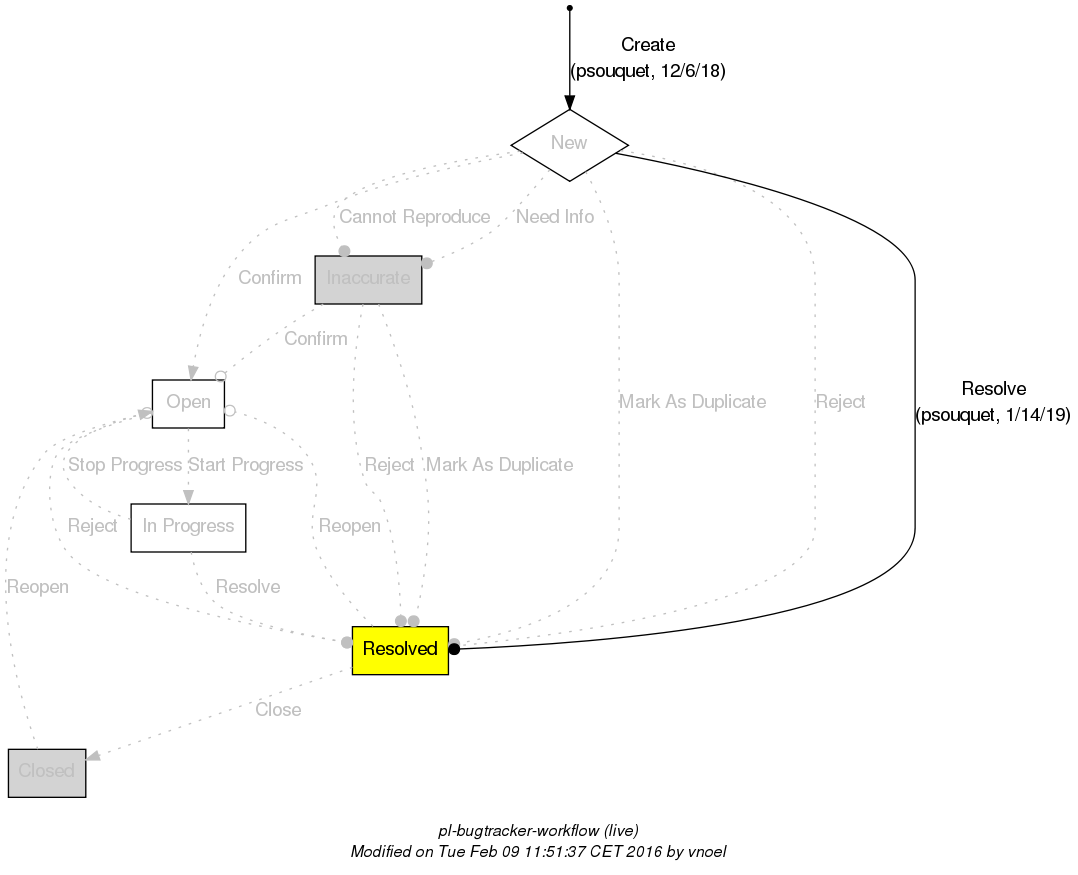Details
-
Type:
 Bug
Bug
-
Status:
 Resolved
Resolved
-
Priority:
 Major
Major
-
Resolution: Fixed
-
Affects Version/s: 5.2.0
-
Fix Version/s: 5.3.0
-
Component/s: None
-
Security Level: Public
-
- Environment:
- -
Issue Links
| Depends | |||
|---|---|---|---|
|
|||
Activity
| Field | Original Value | New Value |
|---|---|---|
| Link |
This issue depends on |
| Fix Version/s | 5.3.0 [ 10877 ] | |
| Priority | Major [ 3 ] | |
| Description |
TCP container metrics {{OutgoingConnectionsMin}} & {{OutgoingConnectionsMax}} return both local and remote containers connections, which appears at time of testing to be the same (and unique) container. Indeed these methods return a Map which key is a String array, allowing two different entries referring to a same container.
|
TCP container metrics {{OutgoingConnectionsMin}} & {{OutgoingConnectionsMax}} return both local and remote containers connections, which appears at time of testing to be the same (and unique) container. Indeed these methods return a Map which key is a String array, allowing two different entries referring to a same container.
Note: |
| Summary | OutgoingConnectionsMin & OutgoingConnectionsMax return both local and remote containers | OutgoingConnections & IncomingConnections return both local and remote containers |
| Description |
TCP container metrics {{OutgoingConnectionsMin}} & {{OutgoingConnectionsMax}} return both local and remote containers connections, which appears at time of testing to be the same (and unique) container. Indeed these methods return a Map which key is a String array, allowing two different entries referring to a same container.
Note: |
TCP container metrics {{OutgoingConnections}} & {{IncomingConnections}} return both local and remote containers connections, which appears at time of testing to be the same (and unique) container. Indeed these methods return a Map which key is a String array, allowing two different entries referring to a same container.
Note: |
| Status | New [ 10000 ] | Resolved [ 10004 ] |
| Resolution | Fixed [ 1 ] |
| Transition | Status Change Time | Execution Times | Last Executer | Last Execution Date | |||||||||
|
|
|
|
|


After investigations, it seems that a single container will return itself twice (once as remote, once as local) container for some metrics. In essence, it makes no sense for TCP communications to return the current container anyway. Current container will be filtered out of the list in TCP metrics.